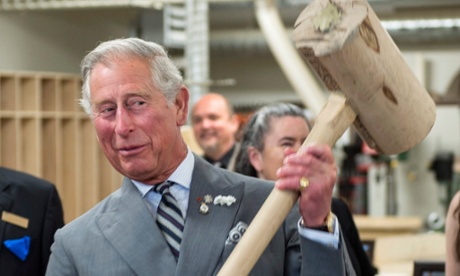You wait decades for business leaders to address climate change, then 43 global CEOs call for concrete action all at once.
The group of CEOs grew out of meetings at the World Economic Forum (WEF), with familiar names in corporate sustainability circles, such as engineering firm Arup, retailer Marks & Spencer, re-insurers Munich Re and multinational consumer goods giant Unilever. But the list also included Sinar Mas, a major player in the global palm oil industry linked to deforestation.
And now some of the most unlikely candidates are queuing to be heard, including the poster children for the fossil fuel high life, such as Formula One and the aviation and fashion industries, the latter considered as a sectoral role model for wasteful, disposable consumerism.
As the science of climate change hardens and with 14 of the hottest years on record happening in the last 15 years, is the corporate world experiencing the equivalent of a mass, death-bed conversion to sustainability? If so, how can we discern hype from reality?
The moral conversion
It’s not unusual when facing mortality, or its career equivalent – retirement – to recant and experience a moral conversion. After serving as managing director and chairman of Shell, Mark Moody Stuart began advocating for climate action against gas guzzling cars and a “less is more” society.
Meanwhile, John Browne, former head of BP, seems to have headed in the other direction. Having attempted to reposition the company “Beyond Petroleum”, he became the “face of fracking” in the UK as chairman of exploration firm Cuadrilla Resources.
Indeed, it is the oil and gas sector that probably provides the acid test for business leadership on sustainability. True wins there would give substantial hope elsewhere. So what does the picture look like?
On trend, the so-called “long silence” on climate change of many of the oil majors came to an end in May. Royal Dutch Shell, Total, BP, Statoil and Eni among others, but excluding the US majors ExxonMobil and Chevron, launched a high profile industry-wide initiative to coordinate their engagement with the climate debate.
They called for action on carbon pricing, but it could easily have been a defensive move given all have come under increasing attack from the public and shareholders. Catherine Howarth, chief executive of ShareAction, says they have been pushed: “It used to be relatively easy for companies to win friends and allay concerns through a glossy brochure strategy. Those days are almost over. Socially activist investors, including citizen-investors, are amongst the powerful influences keeping companies honest.”
Leadership on climate
If leadership is about taking others with you, where oil companies are concerned the big US players are being left behind, with talk of a widening rift. Exxon’s CEO, for one, actively touts the “climate benefits” of shale gas. But even in the apparently more progressive camp, things are as murky as an oil slick in the Gulf of Mexico.
Bob Dudley, BP’s chief executive, is calling for a “substantial deal” at this year’s Paris climate talks, due to begin on 30 November. Meanwhile, the company says it expects coal use to rise until 2035, implicitly assuming any “substantial” climate agreement will make no difference. The oil giant is also a major sponsor of the controversial inaugural European Games in the oil capital of Azerbaijan, Baku.
“Of course, there are some businesses doing everything in their power to tackle environmental issues,” says Andy Rowell, director of Spinwatch. “But for the vast majority it’s business a usual. If they were serious, we would be seeing rapid disinvestment from oil and gas.” James Marriott, author of The Oil Road, agrees: “It’s about keeping the machine going.”
The oil industry knows its business is not sustainable, but doesn’t have the wit or imagination to do anything different. Shell knows its operations in the Arctic are highly risky, both ecologically and financially. So why does it carry on pursuing them? Because it’s frightened of turning round to investors and saying “we don’t know what else to do”.
There have, of course, been some genuinely surprising and radical examples of leadership. The Industry Task Force on Peak Oil and Energy Security, which includes Arup, the DIY chain B&Q and the transport group Stagecoach, promoted a difficult and unpopular idea about oil decline to government and industry.
Credible action?
Others are more sanguine. Jonathon Porritt, founder of Forum for the Future and a long-term observer of corporate action on sustainability, says: “I can’t help but compare what seems to be moving forward within the business community, and just how little seems to be moving forward within government circles.”
For many, he says, sustainability has become part of broader commercial ambitions. Corporate coalitions are spreading and businesses now engage directly in green advocacy, which “would never have happened before”.
At the same time as WEF produced the letter from 43 CEOs, an opinion poll of 1,300 business leaders published at the Forum failed to mention climate change.
In the recent summer blockbuster Jurassic World, there is a moment when the theme park experiences what is delightfully called a “containment anomaly”, when the people-crunching dinosaurs escape. Here is the problem and perhaps the greatest challenge for businesses which must deliver growth for shareholders year-on-year. The global economy has become simply too large for the healthy functioning of its parent biosphere. Well-meaning greening by firms and sectors is overwhelmed by the overall global scale and growth of production and consumption.
The acid test for business leadership on sustainability will be when they tell us to consume less of what they produce, so we can all live well and equitably within our planetary means. No credible industry leaders have yet come forward to take up this challenge.











